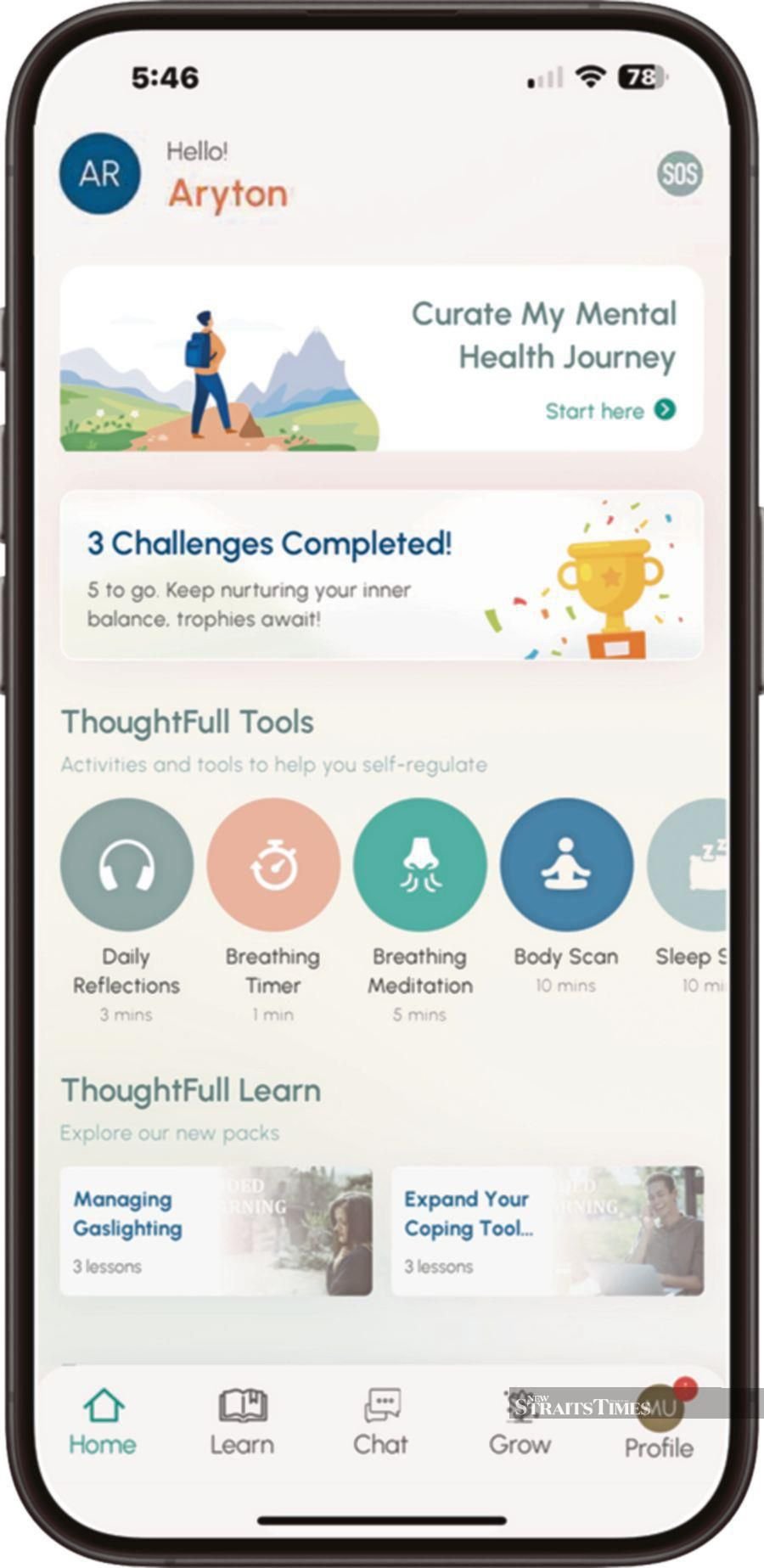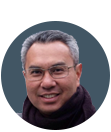

IN a world where the complexities of mental health often go unnoticed or unaddressed, Joan Low, a former banker with an impressive track record of managing billion-dollar portfolios, made a bold and unexpected career shift.
She left behind the world of finance to venture into an entirely new realm, digital mental health.
Today, as the founder and chief executive officer of ThoughtFull, Joan is leading the charge in making mental healthcare accessible and proactive through her innovative app, ThoughtFullChat.
HOW IT STARTED
According to Low, the seeds for ThoughtFullChat were sown long before she even considered leaving her corporate career.
For over 20 years, she had been a mental health caregiver, a role that exposed her to the significant gaps in the accessibility and effectiveness of mental healthcare.
Her frustration with these gaps, coupled with hope inspired by the advancements in digital mental health solutions overseas, led her to envision a platform that could bridge these divides.
Leaving behind a secure and lucrative job was not an easy decision, but Low felt a calling that was impossible to ignore.
"The decision to leave (the) finance (industry) and jump headfirst into creating ThoughtFullChat was a calling that was 20 years in the making," said Low.
"I saw the gaps in accessible mental health solutions and knew there had to be a better way."
THE JOURNEY
Low's journey is unique, not just because of the industry shift, but also because of how she approached it.
With a background in international politics and economics and years of experience managing US$1.3 billion worth of portfolios at J.P. Morgan in Hong Kong, Low was no stranger to complex problem-solving.
However, her lack of prior exposure to the mental health sector turned out to be a strength rather than a weakness.
"I studied international politics and economics and worked in (the) finance (industry) in Hong Kong, managing portfolios worth US$1.3 billion. When it comes to solving the world's biggest problems, what matters is not just your degree, but the ability to observe, think critically and execute," she said.
Her analytical skills and critical thinking allowed her to approach mental health from a fresh perspective, focusing solely on the needs of patients and clients.
THE APP BUILDING PROCESS
Low and her team engaged in 18 months of groundwork, running mental health workshops for thousands of consumers and corporations. This extensive research helped them understand the user journey, identify gaps in the mental health ecosystem and design an app that could seamlessly deliver care.
"We did a lot of groundwork running mental health workshops to understand the user journey before designing ThoughtFullChat," she said.
"We needed to know where the gaps were — from who provides the services to who pays for them, who consumes them, and how they are consumed."
The app was launched on Apple's App Store, chosen for its high standards of security and data protection.
"Incumbent on developers operating in the healthcare space is the responsibility to uphold the highest standards of privacy and data security, and we are glad that we took this path forward," said Low.
CHALLENGES
Launching a mental health app in Southeast Asia posed its own set of challenges, particularly in a region where awareness was almost non-existent just a few decades ago.
"When ThoughtFullChat started before the Covid-19 pandemic five to six years ago, there were not as many mental health apps in Asia, and the journey of even unpacking one's mental health was practically unheard of — we were pioneers in the region," said Low.
The cultural stigma surrounding mental health in Southeast Asia has been a significant hurdle, but Low and her team have worked tirelessly to educate the public and change perceptions.
The pandemic accelerated this shift, as seamless and affordable access to mental health became more crucial than ever.
THE ROLE OF TECHNOLOGY
For Low, technology is a pivotal tool in addressing mental health issues, particularly in a region where access to traditional resources can be limited.
ThoughtFullChat leverages technology to bridge geographical, socio-cultural and socio-linguistic gaps, offering personalised mental health support that is immediate and tailored to individual needs.
"Technology and digital platforms are pivotal in addressing mental health issues in Southeast Asia, where access to traditional mental health resources can be limited," she said.
"Through ThoughtFullChat, we bridge gaps, making mental health care accessible anytime and anywhere."
Looking ahead, Low envisions a world where mental health practices are integrated into daily habits, free from stigma, and accessible to all.
"I envision #athoughtfullworld, where stigma is broken down, mental health practices are ubiquitous, and financially accessible to the masses," she said.
